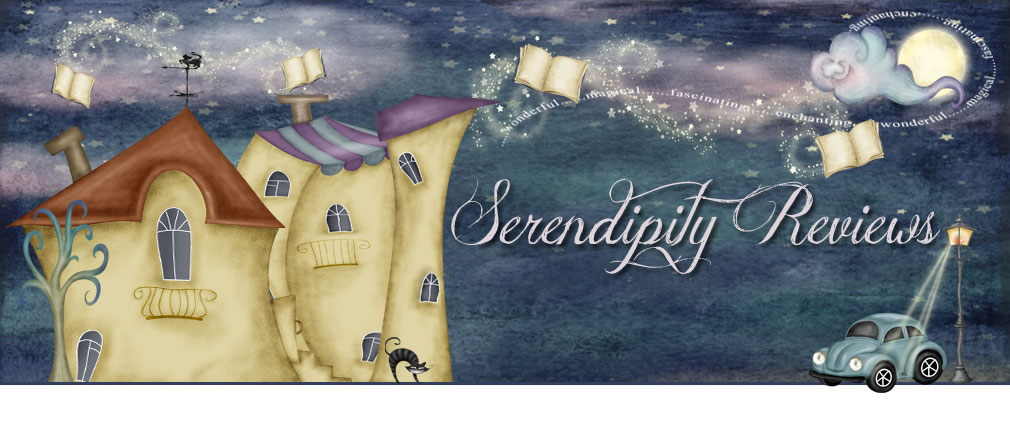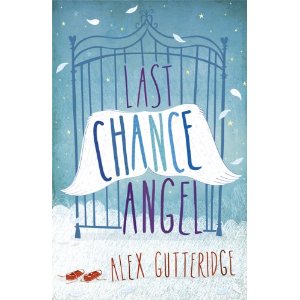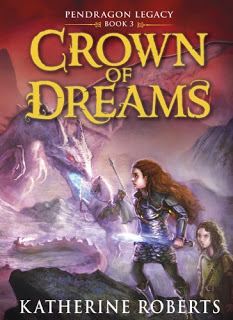The answer is yes!
Not that I’m recommending that this is
the way forward for everyone, but it is possible to get your book into the
hands of a publisher without an agent taking
that initial step for you.
Everyone wants an agent. It is that first hurdle to climb over, bringing you one step closer to your goal of being a published author. Their knowledge, understanding and expertise of the publishing industry allows them to represent their authors successfully to the right publisher. Unfortunately, agents are only human and there are only so many authors they can realistically represent; with the rise of the unpublished and the fall in book sales, the traditional route is become narrower. So if your book has been turned down, but you have received good feedback, it doesn't mean your book won't ever get published; you just might not have find the right route for you.
Everyone wants an agent. It is that first hurdle to climb over, bringing you one step closer to your goal of being a published author. Their knowledge, understanding and expertise of the publishing industry allows them to represent their authors successfully to the right publisher. Unfortunately, agents are only human and there are only so many authors they can realistically represent; with the rise of the unpublished and the fall in book sales, the traditional route is become narrower. So if your book has been turned down, but you have received good feedback, it doesn't mean your book won't ever get published; you just might not have find the right route for you.
Many publishers are rethinking their strategies concerning submissions and opening the door to the famous ‘slush pile’ again. Macmillan Tor Books recently
announced it was now accepting submissions directly from authors in definitely.
The reason behind making the shift was
because of the growing number of writers who were taking the self-publishing route; allowing everyone
the chance to have their work read.
Macmillan Tor Books are not
the first publisher to take this position but they are one of the bigger higher
profile ones to embark on this route again. They follow on from smaller publishers
such as Templar Publishing, Hot Key
Books, Choc Lit and Black and White Publishing who have always accepted
submissions. When discussing the unagented submissions with Hot Key Books, Cait Davies, told me the reason
why they kept that route open. ‘Although we haven't published anything from
there as yet, there have been manuscripts that have excited us, and we have
seen a number of writers with wonderful voices that are just waiting for the
right story.’
Other publishers are allowing unagented submissions to be delivered but on
a smaller scale. Angry Robot and their newly established YA imprint Strange Chemistry
recently opened their doors for one month to allow direct submissions from
unagented authors.
Successful YA author, Alex Gutteridge,
whose book, Last Chance Angel will be published by Templar later this year, was
picked up via the unagented submissions route. I asked Alex why she chose to send
her book directly to a publisher. Alex replied “Sometimes I think that I would like an agent
and sometimes I think that I am better off on my own. I like to know where my
work has been sent to. I like to know how long it has been there. I like the
freedom to write what I want to write and not feel the pressure that I have to
be producing something for an agent. On the other hand if I had an agent who
was getting me commissions that would be lovely too.”
Alex Gutteridge isn’t one of a kind; on delving
further into the world of Templar Publishing, I came across another author who
presently didn’t have an agent and had been picked up via this route. Branford
Boase award winning author, Katherine Roberts who recently published Book 3 in
her Pendragon Legacy series, also managed it without an agent.
Katherine told me, ‘ I sold my first novel without an agent by
sending sample chapters straight to publishers (“Song Quest” was picked up by
Barry Cunningham, then an editor at Element Books and later managing director
of Chicken House). I also negotiated my latest four-book deal with Helen Boyle
at Templar during an agentless period. I think it helps if you know someone who
knows the editor, but if you have a strong enough book then the “slush pile”
route should work - it just takes longer (sometimes a lot longer!)’
Alex Gutteridge and Katherine Roberts have been successful through Templar
Publishing. Others authors have found success through smaller, independent
publishers. Only last week Sharon Gosling featured on The Big Break
feature on the blog, her debut novel The Diamond Thief was published this month
by Curious Fox without an agent.
As you can see it is possible to reach the dream of publication. It’s good to know that
there are other options available; there are other routes you can take that
will allow you to get your book into the hands of a publisher.
However, don’t for one second imagine
that it is easy. Although these authors have got their book published
without the aid of an agent, it does have
a downside. Katherine Roberts said, “It’s almost impossible to get your work
looked at by the bigger publishers. It’s also very energy draining and time
consuming to negotiate your own publishing contract, even with the Society of
Authors’ help. And later, you have to deal with all the stuff your agent
usually deals with, such as chasing and checking payments and looking after the
admin side of the contract. Agents also seem better placed to negotiate foreign
rights and film/TV deals than publishers, but that might depend on the agent.”
So is this the way forward for you? Should you go straight to the publishers
that have an open submissions policy or follow the traditional route and find
yourself an agent first? Only you can decide.
Alex Gutteridge says “To go on your
own you have to have passion, persistence and patience in spades. It’s tough
but then writing is tough for people with agents at the moment. I’ve had 5
books taken from the slush pile and a further 4 commissioned as a result of
that. My latest book for Templar, Last Chance Angel was sent in as an
unsolicited manuscript and I was absolutely thrilled when they took it. So to
all of you out there wondering what to do - it has to be what’s right for you
but if I can get work taken as an unagented author, with the right attitude,
you can too. From my experience, having an agent is
no guarantee of getting a good publishing deal - or indeed any deal. ‘
Industry experts and published authors would advise that you try and find an
agent first. Go through your Writer’s and Artist’s Yearbooks and check out the
agents listed; try to find one that represents work by author’s in a similar
genre to you and send them a sample of your work alongside a covering letter
and synopsis. If after exhausting this option, you still haven’t found an
agent, then don’t despair, contact the
publishers who accept open submissions and see where that will take you.
However be prepared, as it won’t necessarily be an easy route to follow. You
will need patience and lots of it, as it can take editors a long time to get
through the pile. So don’t expect a reply straight away as it could take
months. It also won’t guarantee that you will be published, but it will allow
you direct access to the some innovative publishers and you never know, you
might just be the author they were looking for.



.jpg)
Great post, thanks Viv :)
ReplyDeleteFab post, thanks Viv. Very interesting and informative. Oooh, it sounds like a tough business though, doesn't it? Eeek!
ReplyDeleteThis is a very informative post for authors who hope to one day get published. That is great, Vivienne :)
ReplyDeleteBy the sound of it one might loose a lot of time one could spend writing if one chooses to straight to the publisher. And also one would have to educate oneself on a much larger scale, because one loses much of the experience and knowledge that comes with an agent.
That being said as far as I know open submissions is they way it is done here in the Norwegian publishing world. Then again we are a wee country so I guess this is what suits the industry best here.
That's how I did it. On my own. I got a publishing deal for a series with Frances Lincoln by approaching them direct. Then I got an agent - who has been wonderful for getting subsequent contracts.
ReplyDeleteI was unagented for years and years, then signed with one agent for a while, then left her and was unagented again and now have another agent. The only reason I wanted the second agent was because I didn't want to be bothered with keeping track of who had moved where and which lists were taking which type of thing. You can do that sort of tracking yourself - just read the Bookseller every week. But I would rather be writing. In addition, I've got no experience of trying to manage foreign rights or sell film/TV rights, so an agent could be useful for that one day.
ReplyDeleteAlex says: "I like to know where my work has been sent to. I like to know how long it has been there. I like the freedom to write what I want to write and not feel the pressure that I have to be producing something for an agent. " These are things you can just ask your agent to tell you! I decide with my agent where to submit things; she forwards all the replies to me (some people prefer not to see the rejections - you can ask for that if you prefer); I write exactly what I want to, but I also ask her opinion - I don't have to follow it. An agent is a not a slave-owner; an agent is a professional adviser *in your pay*. It is a partnership, but remember the agent lives on money *you* earn, so if you don't like what they do, say so. If you still don't like it, leave them.
Publishing contracts are not as hard as everyone makes out. I wrote a series of blog posts called How to Read a Publishing Contract, which are now all collected together on my blog if anyone going it alone wants to look: http://stroppyauthor.blogspot.co.uk/p/how-to-read-publishing-contract.html
In fact, you should pay just as much attention to the contract if you *do* have an agent.
Graat post Viv. In reply to Stroppy Author it's not always that simple. Obviously most agents are very good but agents do not always tell you where they've sent your work and things do go astray. I know of someone whose precious manuscript went down behind a filing cabinet and was not located until the author chased up what had happened to it quite some time later. They key word is partnership and the quest is to finding someone who is right for you if that is the route you choose to go down.
Delete"someone whose precious manuscript went down behind a filing cabinet" - that must have been a very long time ago as I have not sent a 'precious manuscript' on paper since 1999. If your agent doesn't tell you where they've sent stuff (and you want to know), fire them! It should indeed be partnership, and if one partner is playing by the rules it's time to end the partnership.
ReplyDeleteThis is a fantastic post. I've received great feedback from agents but it's so subjective that I've had more luck gaining the interest of small publishers. I currently have two series contracted with small presses even though I don't have an agent, although I might consider looking for one in the long run.
ReplyDeleteSuch a fantastic and informative post :)
ReplyDeleteThis is a very timely post for me. I was lucky enough to get a publishing deal from a small company and was happy to sign with them. But I do intend to look for an agent as I feel it takes some of the pressure of trying to market and promote myself (the hard bit) off my shoulders. I see it as a way forward with my career as a writer as I won't be on my own. Someone else is showing they have faith in me too.
ReplyDeleteI wish life as a wrter was as simple as sitting in my little office and making up stories all day and watching them fly off the shelves! But magic doesn't exist - does it?
Good luck everyone.
What a great post, gives us hope that one day we might get something out there. xx
ReplyDelete